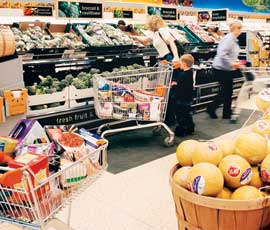Animal welfare concerns reduce during recession

Almost one-fifth of consumers think animal welfare is less important during the recession, according to Which?.
The consumer organisation surveyed more than 2,000 people and conducted numerous workshops with consumers around the UK and found attitudes to food can change considerably depending on the economic climate.
Speaking at the Waitrose Farming Conference in Birmingham on Tuesday (6 November) Sue Davies, chief policy adviser at Which?, said consumers were also more likely to buy meat from discount supermarkets and value brands during the recession.
Organic meat suffered the most in the survey, with more than one-third of consumers less likely to buy it, while 12% said they were less likely to buy farm-assured meat.
However, the good news for farmers is that recognition of the Red Tractor logo is on the up, according to Ms Davies. Almost half of consumers now recognise the logo.
“When we did this two years ago Red Tractor [recognition] was only about 20%, which was really surprising, so that has gone up,” she said.
Concern over GM produce was also rising, with two-thirds of consumers worried about unknown long-term safety consequences of new food technologies.
Almost half would not accept animal cloning for food, 45% said they would not accept GM animals and 39% would not accept fruit or vegetables from GM crops as they were deemed “unnatural”.
“People felt supportive of retailers continuing to not have GM products,” said Ms Davies.
But consumers want more transparency when it comes to GM research and independent regulation, she said.
“People felt generally that they did not know what research was going on or who was carrying out the research.
“But underpinning all this, some people thought there should be certain standards that should be taken care of [by producers and retailers], such as safety and animal welfare.”
